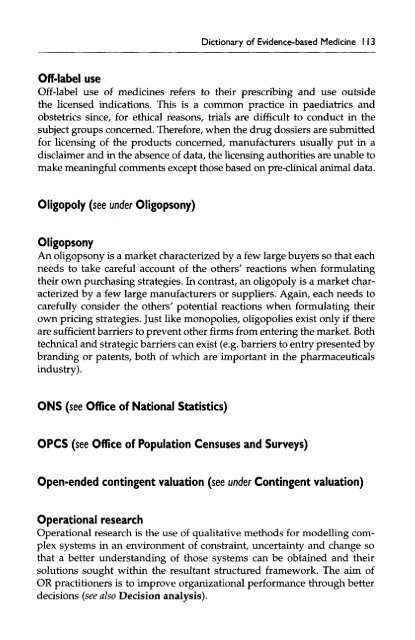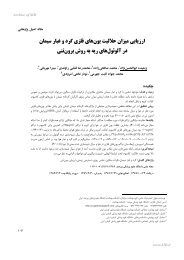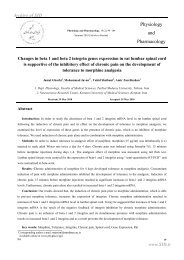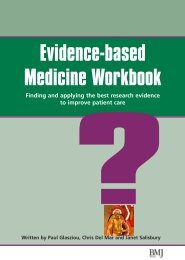Dictionary of Evidence-based Medicine.pdf
Dictionary of Evidence-based Medicine.pdf
Dictionary of Evidence-based Medicine.pdf
You also want an ePaper? Increase the reach of your titles
YUMPU automatically turns print PDFs into web optimized ePapers that Google loves.
<strong>Dictionary</strong> <strong>of</strong> <strong>Evidence</strong>-<strong>based</strong> <strong>Medicine</strong> 113<br />
Off-label use<br />
Off-label use <strong>of</strong> medicines refers to their prescribing and use outside<br />
the licensed indications. This is a common practice in paediatrics and<br />
obstetrics since, for ethical reasons, trials are difficult to conduct in the<br />
subject groups concerned. Therefore, when the drug dossiers are submitted<br />
for licensing <strong>of</strong> the products concerned, manufacturers usually put in a<br />
disclaimer and in the absence <strong>of</strong> data, the licensing authorities are unable to<br />
make meaningful comments except those <strong>based</strong> on pre-clinical animal data.<br />
Oligopoly (see under Oligopsony)<br />
Oligopsony<br />
An oligopsony is a market characterized by a few large buyers so that each<br />
needs to take careful account <strong>of</strong> the others' reactions when formulating<br />
their own purchasing strategies. In contrast, an oligopoly is a market characterized<br />
by a few large manufacturers or suppliers. Again, each needs to<br />
carefully consider the others' potential reactions when formulating their<br />
own pricing strategies. Just like monopolies, oligopolies exist only if there<br />
are sufficient barriers to prevent other firms from entering the market. Both<br />
technical and strategic barriers can exist (e.g. barriers to entry presented by<br />
branding or patents, both <strong>of</strong> which are important in the pharmaceuticals<br />
industry).<br />
ONS (see Office <strong>of</strong> National Statistics)<br />
OPCS (see Office <strong>of</strong> Population Censuses and Surveys)<br />
Open-ended contingent valuation (see under Contingent valuation)<br />
Operational research<br />
Operational research is the use <strong>of</strong> qualitative methods for modelling complex<br />
systems in an environment <strong>of</strong> constraint, uncertainty and change so<br />
that a better understanding <strong>of</strong> those systems can be obtained and their<br />
solutions sought within the resultant structured framework. The aim <strong>of</strong><br />
OR practitioners is to improve organizational performance through better<br />
decisions (see also Decision analysis).










